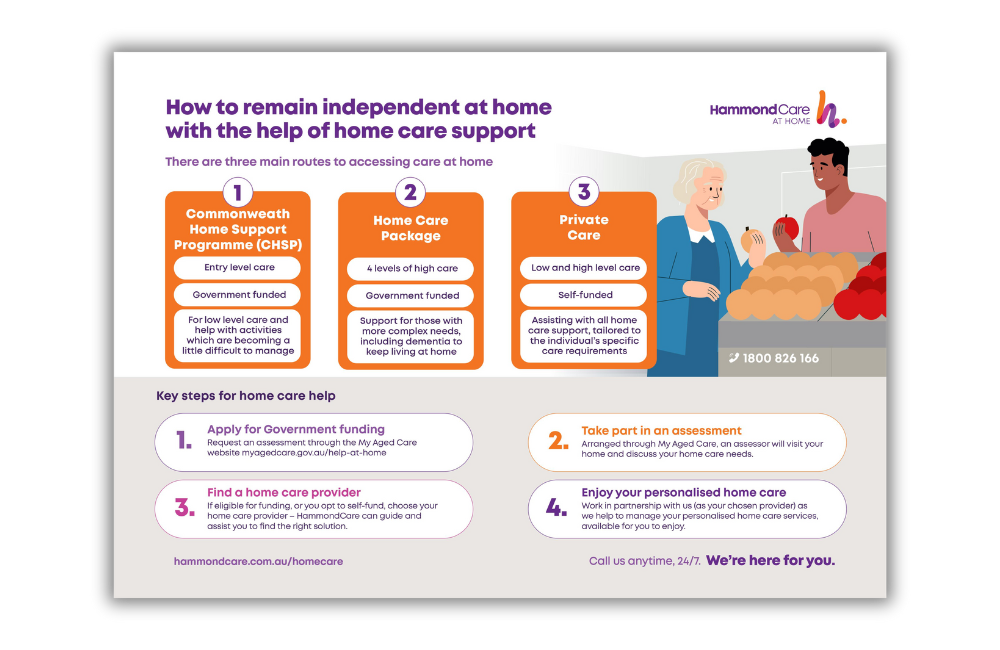Practical steps to communicate your needs to a support at home provider
Practical steps to communicate your needs to a support at home provider
Blog Article
All About Home Care Services for People With Disabilities: NDIS Registered Support
Home treatment services under the NDIS play a pivotal role in sustaining people with impairments. These solutions are created to enhance everyday living with tailored help, ranging from individual treatment to wheelchair support. Comprehending exactly how to browse these choices can be intricate. This overview checks out the different aspects of NDIS home treatment, from offered services to the choice of providers, highlighting essential factors to consider for those looking for support. The trip toward empowered treatment starts below.
Understanding the NDIS and Its Objective
The National Impairment Insurance Scheme (NDIS) functions as a transformative framework designed to supply support and services for people with disabilities. Established to improve the lifestyle and guarantee fair access to essential sources, the NDIS equips participants by using personalized strategies customized to their distinct requirements. It aims to promote freedom, making it possible for people to seek their personal goals and aspirations.Through an organized technique, the NDIS allots financing for various assistances, consisting of education and learning, employment help, and area involvement. This all-encompassing plan not only concentrates on instant care yet additionally emphasizes lasting developmental results. By advertising choice and control, the NDIS urges participants to select their favored solution companies, assuring that care lines up with their choices and worths. Ultimately, the NDIS stands for a significant commitment to improving the lives of individuals with disabilities, cultivating inclusivity, and building an extra supportive culture.
Kinds of Home Care Provider Available
Different kinds of home care solutions cater to people with handicaps, mostly concentrating on individual care help and break treatment alternatives. Personal treatment assistance provides important assistance with day-to-day activities, while reprieve treatment offers short-term alleviation for key caretakers. Understanding these solutions is crucial for ensuring the well-being of both people with handicaps and their family members.
Personal Treatment Aid
While maneuvering everyday life can offer difficulties for individuals with impairments, individual care support provides important support tailored to their distinct requirements. This sort of home treatment solution includes a variety of activities made to advertise independence and improve lifestyle. Individual care assistants help with everyday jobs such as showering, dressing, grooming, and toileting, making certain individuals preserve individual health and comfort. They might additionally aid with meal prep work, drug administration, and mobility support. By supplying individualized care, these experts empower individuals to involve even more completely in their day-to-day routines and social tasks. In general, individual treatment support plays a substantial function in fostering self-respect and autonomy for those with specials needs, enabling them to thrive in their home setting.

Respite Care Options
Break treatment offers as a crucial source for family members and caregivers of individuals with handicaps, offering momentary alleviation from the demands of day-to-day caregiving. This kind of solution can take numerous kinds, including at home respite treatment, where skilled experts check out the home to help with care jobs. Additionally, family members may decide for facility-based break treatment, where people obtain care in a customized environment, enabling caregivers to take a break. Additionally, some organizations offer emergency break services for unexpected circumstances. These options not just help relieve caregiver stress and anxiety but likewise promote the well-being of people with handicaps by offering them brand-new experiences and social interaction. Overall, break care plays a crucial function in sustaining both caretakers and those they look after.
How to Gain Access To NDIS Home Treatment Services
Accessing NDIS home care solutions includes recognizing the eligibility criteria stated by the National Special Needs Insurance Plan. People should browse an organized application procedure to protect the necessary assistance tailored to their demands. This area will certainly clear up both the qualification needs and the steps associated with making an application for services.
Qualification Criteria Discussed
To certify for NDIS home care solutions, individuals need to meet specific eligibility requirements that assess their demands and scenarios. Initially, applicants have to be matured between 7 and 65 years and have a permanent and considerable disability that impacts their capacity to perform day-to-day activities. Additionally, they have to be an Australian citizen, a permanent citizen, or hold a Protected Special Category Visa. The NDIS needs evidence of the special needs, usually with clinical assessments or reports. Individuals ought to show that they need assistance to get involved in financial and social life. These requirements ensure that solutions are routed in the direction of those who genuinely need help, advertising freedom and enhanced lifestyle for individuals with specials needs.
Application Refine Steps
Can I Choose My Own Assistance Workers Via NDIS?
The individual made inquiries whether they might choose their own support workers under the NDIS structure. Normally, participants have the adaptability to select support employees, fostering personalized treatment that lines up with their specific requirements and choices.
What Takes place if My Demands Change After Receiving Assistance?
If a person's demands adjustment after getting assistance, they must communicate these modifications to their service copyright. Adjustments can be made to the treatment strategy, making certain that the go to website assistance remains reliable and pertinent for their situations.

Exist Limits on Just How Numerous Hours of Care I Can Get?
The specific asked concerning possible limits on the number of treatment hours obtained. Usually, such limits may exist based upon certain plans or moneying plans, emphasizing the importance of assessing agreements and guidelines regularly.
Can I Make Use Of NDIS Financing for Home Alterations?
The inquiry of utilizing funding for home adjustments occurs frequently. Typically, individuals might make use of NDIS financing for essential modifications to their homes, guaranteeing access and safety, contingent upon conference particular qualification standards and guidelines.
Just how Do I Take care of Grievances Concerning My Home Treatment Solutions?
To address complaints about home care services, individuals should first document their worries. They can connect straight with their service provider, looking for resolution, or intensify the problem to relevant oversight bodies if necessary. Home care solutions under the NDIS play a critical function in supporting individuals with disabilities. Different types of home care solutions cater to individuals with impairments, largely focusing on personal care assistance and break care options. home care providers. Individual care assistance provides vital support with everyday tasks, while respite treatment offers short-term alleviation for main caretakers. Households might choose for facility-based reprieve care, where individuals receive care in a specific this website environment, permitting caregivers to take a break. Exactly how can households properly handle the monetary facets of home treatment solutions for individuals with impairments?
Report this page